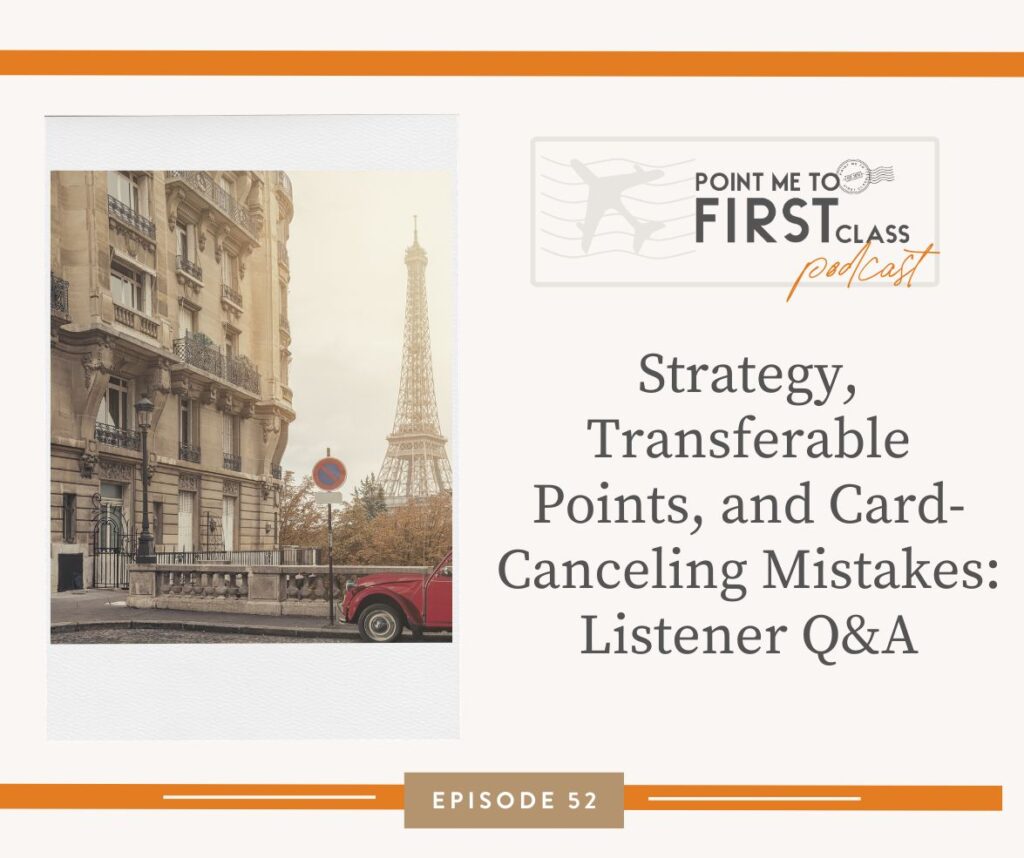February 26, 2024
Strategy, Transferable Points, and Card-Canceling Mistakes: Listener Q&A
Episode Description
In this episode, I’m answering questions from listeners just like you. We’re covering a wide range of topics like rewards cards and points earning and redeeming strategies, and I’m giving you a host of recommendations for navigating the world of award travel.
What do you do with cards once you’ve had them for a while and you’ve already earned the welcome bonus? How many cards is too many for you? What strategy will allow you to accumulate millions of points over one year? What is the best transferable points currency for your strategy? What is the best way to get to Japan using points? These are just some of the questions I’m covering today.
Tune in this week to get your questions about the points travel world answered. I’m discussing specific cards, points currencies, and strategies that will help you achieve your points travel goals, as well as covering some redemption opportunities and cards that will help you leverage the money you’re already spending.
To be the first to know when my Points Made Easy course reopens for enrollment, join the waitlist here!
What You’ll Learn from this Episode
- How to evaluate the rewards cards that you accrue and hold in your portfolio.
- Why you might decide to keep a card long-term, even if it has a high annual fee.
- One huge card cancellation mistake you need to avoid.
- Why accumulating millions of points is possible, as long as you have a strategy.
- The easiest and fastest ways to earn points.
- How to come up with a points strategy that is appropriate for your needs and resources.
- Some strong points earning cards that don’t have an annual fee.
Featured on the Show:
- Follow me on Instagram
- Send me an email
- Get on the waitlist for the Points Made Easy Course here!
- Get My Cash-Back Credit Card Cheat Sheet!
- If you have any more questions or you want me to dive deeper into a specific topic, email me here: podcast@pointmetofirstclass.com
- 13: Everything Rewards Travel: Listener Q&A
- 32: How to Explode Your Q4 Points Earning with Rakuten
- 42: High-Yield Strategies for Solo Points Earners with Dr. Erin Casey
Click here to download full episode transcript

Enjoy the Show?
- Don’t miss an episode, follow the podcast on Apple Podcasts, Spotify, Stitcher, or RSS.
- Leave me a review in Apple Podcasts.
Point Me to First Class is the show for professionals and business owners with higher-than-average personal or business expenses, who want to learn to leverage these expenses into credit card points they can spend on travel.
Each week, I share valuable tips, tools, and strategies to help you uplevel your skills earning and redeeming credit card points, so you can expand your travel and expand your experiences.